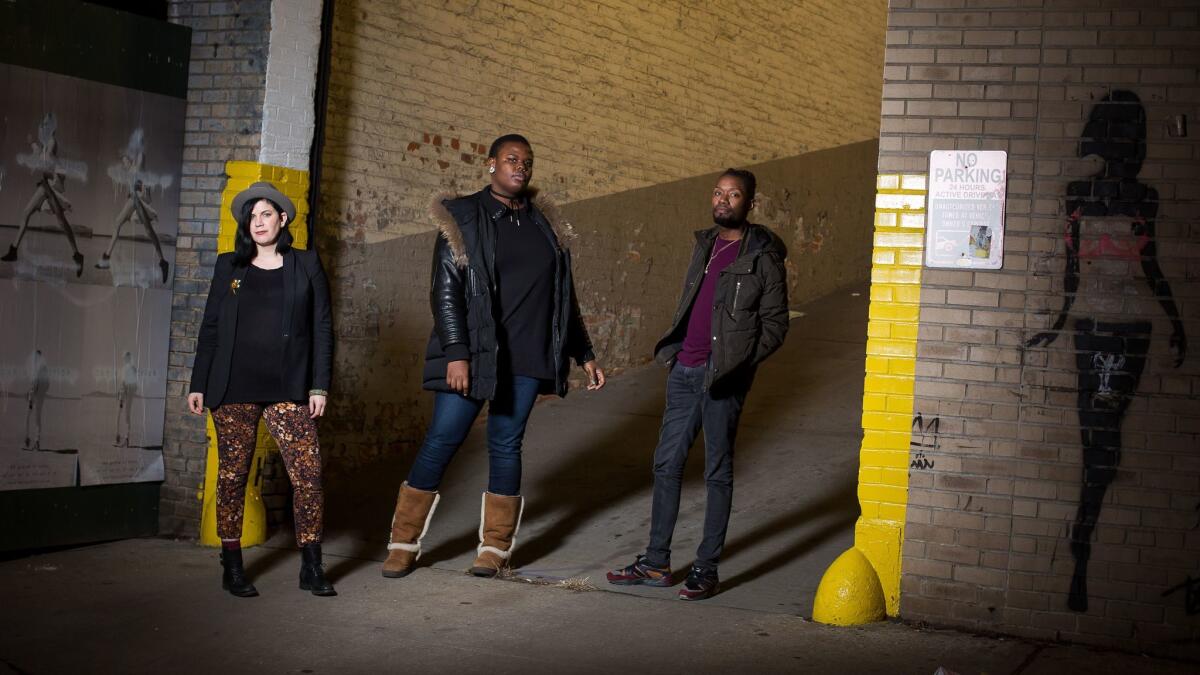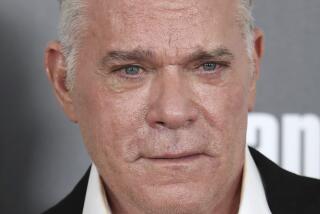‘Kiki’ is no ‘Paris Is Burning’ — and that’s a good thing
“Kiki,” a new documentary in the spirit of the seminal 1990 film “Paris Is Burning,” takes its audience into New York City’s underground ballroom scene. But your granny’s waltz or cousin’s Argentine tango won’t be found here.
This is a space for “butch queens,” “femme queens” and “sex sirens,” primarily black and Latino LGBTQ people who use ballroom and the dance floor as a form of expression, an outlet for gender interrogation and therapy.
Voguing, the now-almost-mainstream dance form, hails from this community. Many recall Madonna’s single from the ’90s, but before her, Malcolm McLaren paid homage to the ball scene with his song “Deep in Vogue” featuring Willi Ninja, the godfather of voguing. Contemporary artists such as Beyoncé, Rihanna, Azealia Banks and Willow Smith also feature elements of voguing in their music and videos.
But most people don’t realize that these dance images can have a deeper meaning.
The visibility of LGBTQ-plus folks in the media is not often . . . who we really are, how we really grow up.
— Twiggy Pucci Garçon
If you’re black or brown and queer, trying to imagine a future for yourself, authentic glimpses of lesbian, gay, bisexual, transgender and other non-heterosexual folks can have an outsized impact, especially when so many popular-culture depictions of queer life are one-dimensional, lacking nuance or compassion.
That’s why Twiggy Pucci Garçon, one of the film’s co-writers and stars, says “Kiki” is important.
“Growing up, I didn’t see a lot of accurate portrayals of the varied identities that I hold,” Garçon says. “I think that even now, the visibility of LGBTQ-plus folks in the media is not often accurately represented — not who we really are, how we really grow up and what we really experience. This film is a great depiction of what’s real for black queer people, particularly those in city and urban environments.”
‘Kiki’ is a political statement.
— Gia Marie Love
Garçon acknowledges the importance of “Paris Is Burning,” but has set out to go further politically with “Kiki.”
“Like Tina Turner is Tina Turner and Beyoncé is Beyoncé, ‘Paris Is Burning’ is ‘Paris Is Burning’ and we’re ‘Kiki,’” Garçon says.
The key to the Kiki scene, a subculture of the city’s larger ball scene, is activism.
“The Kiki ballroom scene was created to address very specific issues among youth in New York City, and that’s a narrative difference between the two [films],” says Gia Marie Love, one of “Kiki’s” stars. “‘Paris Is Burning’ is more about the performative aspect. ‘Kiki’ is a political statement, because kids ages 13 to 24 are among the highest at-risk groups in our country. The Kiki scene was created to provide education to that at-risk group through many different outlets.”
Those outlets go beyond dance.
“There’s a different sense of agency and political activism that you see and a relationship between the people in this film and how we are in society, not just in ballroom,” Love says. “We use ballroom as a platform to be in the world.”
In addition to Garçon, a senior program officer at Cyndi Lauper’s nonprofit True Colors Fund, and Love, a community activist around HIV and STI prevention, also in the film is Chi Chi Mizrahi, a program coordinator for Mount Sinai Beth Israel’s Peter Krueger Clinic. All three are noted leaders in the ballroom community. They are joined by Kenneth “Symba McQueen” Soler-Rios, Christopher Waldorf, Izana “Zaryia Mizrahi” Vidal and Divo Pink Lady in an effort to — in a post-“Moonlight” world — further complicate perceptions of blackness and queerness. It’s one of the film’s through-lines, says director Sara Jordenö.
“One of the things that Divo says in the film is, ‘People feel that we’re all the same, just like a mass of LGBTQ youth of color,’” she says. “‘Kiki’ is character driven, following these people in what I feel is a nuanced way.”
Jordenö, a New York- and Gothenburg-based Swedish visual artist, stumbled on the Kiki scene while conducting interviews for another project at a Harlem community organization where Garçon and Chi Chi worked. (“I don’t know, they’re magical, and their friendship and mentorship and the way they were talking and the openness and honesty and everything — I was just really, really attracted to that,” she says.) One day, the pair approached Jordenö to do a project on the community. She obliged, but the initial idea was not a documentary. Along the way however, she says, “it so quickly became a very important project for me.”

“Why I dropped everything else and just wanted to do nothing but spend time and learn from this community is that I feel like they’re so important,” says Jordenö, who is a white “cisgender, lesbian woman.” “It’s just a space where it’s the absolute opposite of toxic masculinity. It’s a matriarchy.”
“We were not creating a documentary,” Love says of the project’s early days. “It was just like talking in front of the camera, talking about how I am in the Kiki scene and in the world.”
But over the four years she was filmed, what started off as “telling my story through words and sharing my experiences through visuals,” Love says, became a diary of sorts chronicling her gender transition, which is just one of the many topics highlighted in “Kiki.”
“You don’t see a lot of representations of the beauty of the transition,” she says, outlining what she hopes trans people take from seeing her experience on film. “A lot of people focus on where they cap, where they transition to, not the process of getting there. It’s important to describe where I’m at today, but the journey of me getting here, I think amplifies [my] story.”
Because, as Love continues, “You’re not going to always have the most affirming experience. You’re not going to even know sometimes how you feel about yourself. Be proud of where you are, but be proud of your trans experience [as well], ‘cause it’s a hard, very courageous experience that requires a lot of fighting, a lot of perseverance. So why just focus on where you are today?”
The film, which premiered at Sundance and like “Paris Is Burning,” won the Berlin International Film Festival’s Teddy for documentary, also touches on the acceptance of male femininity, survival sex work and how ballroom can be, for some, church and ministry when formal places of worship close their doors. But through all of the socio-political concepts made real through the cast’s lives, the persisting message is hope and the ability to dream up a future far better than the present.
“It really digs down deep into the fact that we really truly have the power to create our own reality and that happens through living our truth,” Garçon says. “That happens through making our way out of no way. It happens by shifting our mind-sets from surviving to thriving. And I think that the film is a very beautiful portrayal that all of those things are possible.”
And despite a broader political atmosphere that might tell many that they are not welcome and their lives matter less than others, “Kiki” says “that there’s a space for people to really come and enjoy themselves and really express themselves and where they can be political,” Love says.
“Because even when there’s no light on our politics and we’re completely erased from the conversation, we’re still having it.”
Get your life! Follow me on Twitter (@TrevellAnderson) or email me: trevell.anderson@latimes.com.
ALSO
Meet ‘Moonlight’s’ Joi McMillon, the first black woman editor to receive an Oscar nomination
Q&A: Marlee Matlin remains a champion for disabled actors, 30 years after winning her Oscar
More to Read
Only good movies
Get the Indie Focus newsletter, Mark Olsen's weekly guide to the world of cinema.
You may occasionally receive promotional content from the Los Angeles Times.







